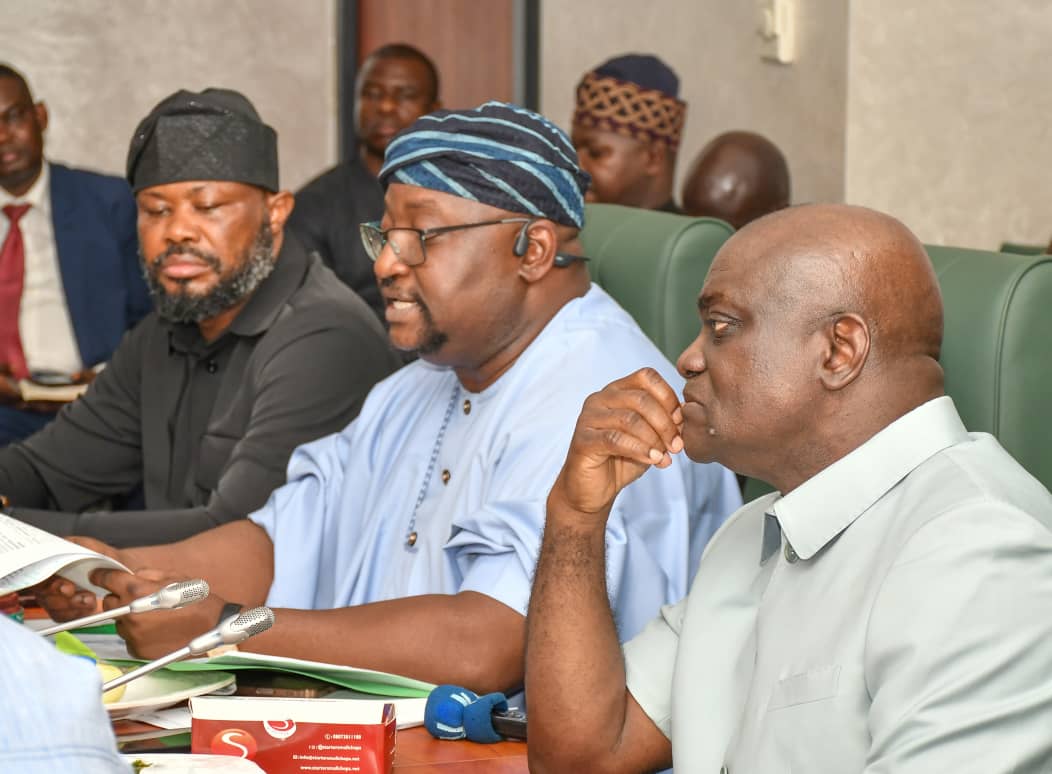The House of Representatives has commenced investigations into the alleged non-repatriation of Nigeria’s crude oil export proceeds, estimated at over $850 billion between 1996 and 2014

The House of Representatives has commenced investigations into the alleged non-repatriation of Nigeria’s crude oil export proceeds, estimated at over $850 billion between 1996 and 2014, describing it as a massive revenue leakage undermining the nation’s economic stability.
Chairman of the House Ad-Hoc Committee on Pre-Shipment Inspection of Exports and Non-Repatriation of Crude Oil Proceeds, Rep. Seyi Sowunmi (LP Lagos), disclosed this on Wednesday during an inaugural press briefing in Abuja.
He explained that the investigation seeks to unravel decades of non-compliance, discrepancies in export data, and systemic failures in enforcing the Pre-Shipment Inspection of Exports Act (CAP P26 LFN 2004), which mandates the inspection and repatriation of export proceeds.
“It is alleged that operators in the oil and gas industry failed to repatriate an estimated 40–45 per cent of Nigeria’s crude oil export proceeds, amounting to approximately USD 850 billion between 1996 and 2014 in clear contravention of the law,” Rep. Sowunmi said.
The lawmaker noted that before the Act was enacted in 1996, Nigeria suffered “endemic leakages in the form of under-valuation, delayed invoicing, price manipulation, illegal swaps, and deliberate overloading.”
According to him, the Nigerian Export Supervision Scheme (NESS) was designed to prevent capital flight, ensure accurate export valuation, and safeguard the nation’s foreign exchange earnings. However, the system has been weakened by poor oversight and non-compliance by key players in the oil and non-oil sectors.
ALSO READ: Reps to investigate $4.6bn health grants from USAID, Global Fund
“Even more worrisome,” Sowunmi continued, “is the disparity among export-earnings data reported by government agencies such as the CBN, the Department of Petroleum Resources (now NUPRC), the NNPC, and the National Bureau of Statistics, as well as inconsistencies between Nigerian and international bodies such as OPEC data.”
He also highlighted that non-oil exports, particularly solid minerals and agricultural commodities, have similarly recorded high levels of unremitted earnings.
The lawmaker said the House under the leadership of Rep. Tajudeen Abbas, set up the ad-hoc committee in line with President Bola Tinubu’s renewed hope agenda to plug revenue leakages and strengthen economic accountability.
He outlined the Committee’s key objectives to include:
- Determining the exact amount of oil, gas, and non-oil export proceeds unrepatriated since 1996.
- Investigating conflicting export-earnings data across agencies.
- Engaging experts for forensic reconciliation of export accounts.
- Examining the management and utilization of funds under the NESS framework.
“This Committee will be guided strictly by evidence, not speculation. Our work will be document-based, data-driven, transparent, and verifiable,” Sowunmi assured. “Nigeria must receive, in full and promptly, every dollar legally due from its exports.”
He emphasized that success would be measured not by publicity but by “verifiable financial recovery to the Federation Account.”
The committee, he said, will apply both civil and criminal sanctions where breaches are discovered and will rely on cooperation from stakeholders, including operators, regulators, and financial institutions.
He also called on the media to play a constructive role by focusing on factual and evidence-based reporting, promising to provide periodic updates and publish non-sensitive documents when necessary.
In addition, the committee will utilize existing whistleblowing channels to gather credible intelligence from industry staff, inspection agents, and financial sector players, guaranteeing confidentiality and potential rewards for informants.
“This inquiry is non-partisan; it is about protecting and strengthening our economy in the interest of our great nation, Nigeria,” Rep. Sowunmi concluded.

